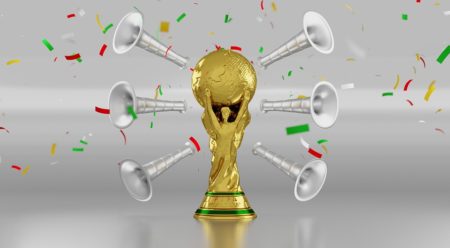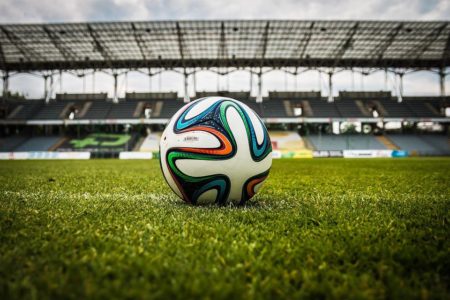Right now, South Africa is in the grip of World Cup fever. Our rainbow nation is 100 per cent behind our national soccer team, known as Bafana Bafana (roughly translated as Boys Boys). Every Friday one is lost in a sea of yellow as supporters don their Bafana Bafana jerseys. There are flags of all the participating nations in most of the shopping malls and along the main streets, while cars display our beautiful South African flag. Among the many benefits to South Africa as World Cup hosts is a massive development of the country’s infrastructure, ten beautiful stadiums and some beautification projects to attract the eye of an expected 300,000 visitors. The hospitality sector has been upgrading its facilities and its menus to ensure that everyone will return to their respective countries with a more positive image of South Africa.
 The ten new stadiums for the World Cup
The ten new stadiums for the World Cup
As part of the build-up to the World Cup, it was decided that the semi-finals and finals of the Rugby Super fourteen should be played in Orlando Stadium – the first time in the country’s history that a match of this magnitude would be played in Soweto. To understand the background to this event, in the past rugby was a “white” man’s game while soccer was traditionally a “black” sport. For most of those who attended these matches at Orlando Stadium, it was the first time that they had ever entered Soweto. Excitement was tangible as 40,000 fans filled the stadium, including many Black supporters who blew their vuvuselas to cheer the South African team to victory. The following story which appeared in one of our national newspapers, The Star, after the semi-final match, captures one man’s experience of his first trip to Soweto.

‘I was on a bus going out of Soweto and had to make a stop at a garage. I was greeted as if I were Jacob Zuma himself, whisked into a clean toilet as the locals went about their business. I was offered a dead chicken for only R15 and it was coloured blue (the participating team’s colour). Then there were no more buses. I walked to the road and asked a metro cop: “How’s a mhlungu (white) gonna get to Nasrec now?” Shaking his head he says “No problem, sir”. He hails a Hiace and tells the driver to take me to the Park and Ride at Nasrec. I sit next to the driver and am impressed as I check his Blue Bulls flag and horns. We smile at each other and shake hands the South African way. Generously, he says: “Free to Nasrec, my Blou Bull broer (my Blue Bull brother).” Within 200m we meet another lonesome cowboy and, after that, pick up another six white University students with lots of beer but no wheels, also trying to get to Nasrec. Soon our taxi is filled with white boys drinking Zamalek and laughing with the driver, listening to Jacaranda (a radio programme), in awe of the day we had just had. He concluded: “I can’t wait for the final but not for the usual reasons …….winning or losing just doesn’t matter anymore. I just want to experience more of the South Africa I missed out on.”
For those of us who lived through the apartheid era, this experience is heart-warming and evokes the euphoria that swept the country after the release of Mandela and during our first democratic elections in 1994.

Sadly, the staging of the World Cup has not been an unmixed blessing. For one thing, the financial spin-offs will not filter down to the country’s poorest inhabitants.
Another disquieting factor is the fact that hawkers will not be allowed to sell goods at any of the stadiums. Many of these vendors were looking forward to enjoying a handsome profit during the World Cup events. Hawking is part of the South African way of life and surely nothing to be ashamed of. Hawkers set up their stalls on the roadside and sell anything that will enable them to make some kind of profit and put food on the table for their families. It appears to be part of the Government’s policy to present a ‘manicured’ vision of South Africa to overseas visitors.
An even more disturbing factor is that homeless people in a number of cities are being forcibly removed far from their usual habitat to other areas where they will be out of sight of the thousands of visitors to South Africa. This decision is a grave injustice. This is how a spokesman of a Johannesburg local council justified this action: “Homelessness and begging are big problems. You have to clean your house before you have guests.” This is a gross violation of human rights, and one can only hope that reason will prevail and that our rainbow nation will be seen in all its reality.
Berchmans Dowling rsm
South African Province


